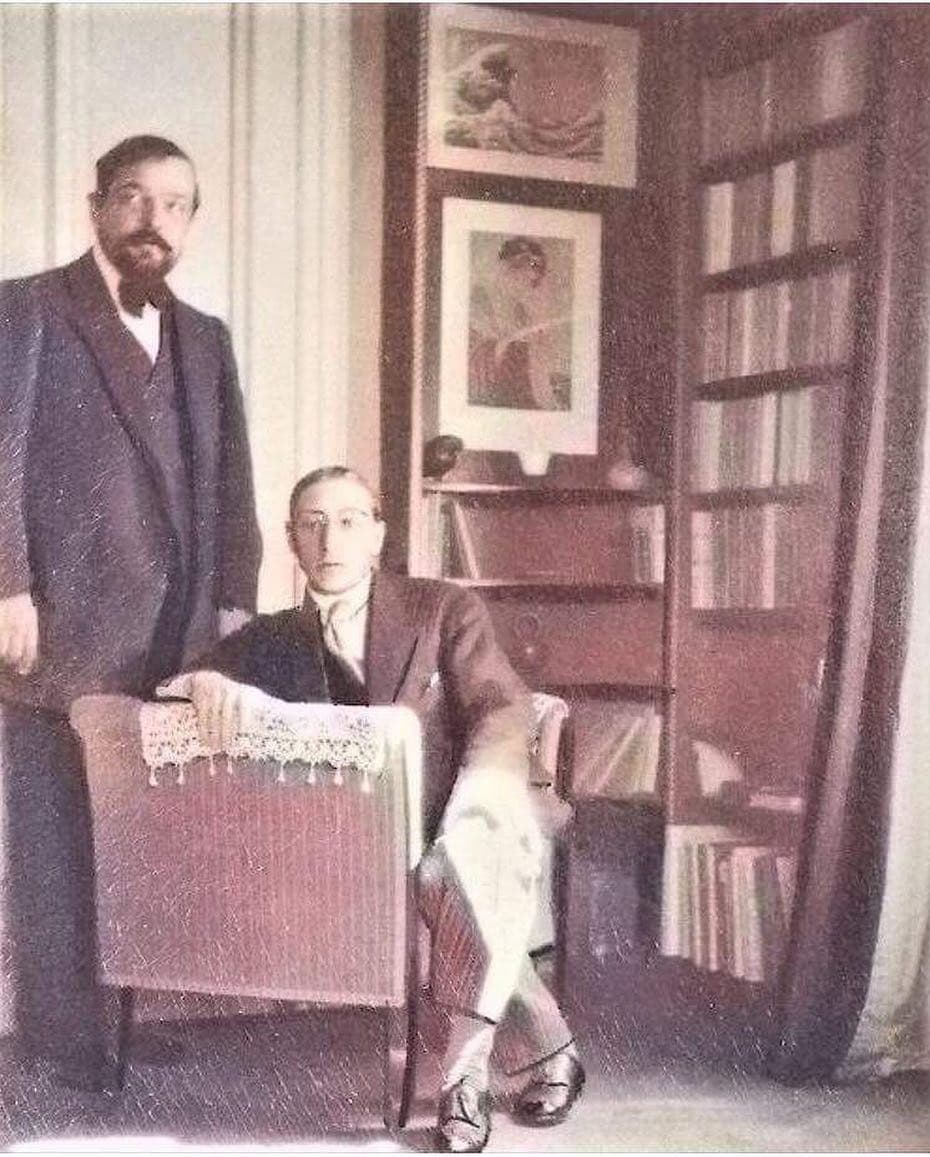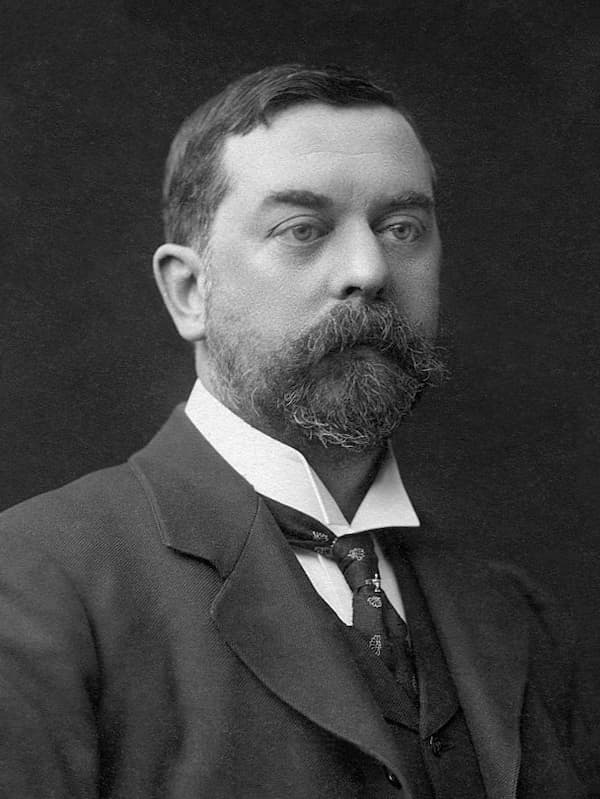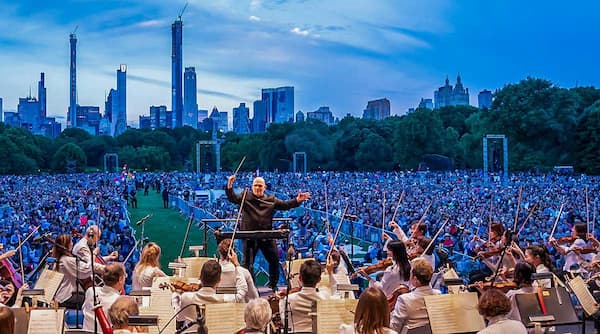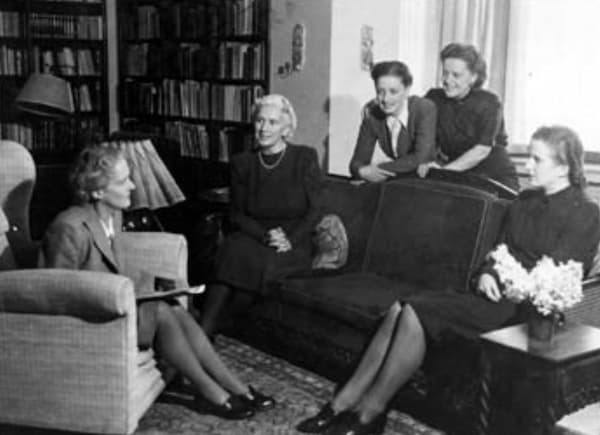Historically, the French and the Russians have had many moments of close intimacy, and the relationship that they have shared can be witnessed today. In their language, their arts, and of course their music. Interestingly enough, this influence has gone both ways; so let’s take a closer look at how the French and the Russians took inspiration from each other. Two names which come to mind almost immediately are the ones of Debussy and Stravinsky, but through this article one will witness that almost all composers from the late nineteenth and twentieth centuries, in both countries, have somehow met a counterpoint in the other country.

Photo of Debussy and Stravinsky, 1910, taken by Erik Satie © History of Music Facebook Page
Of course, we should start with Rimsky-Korsakov whose music represents an important influence on the music of the French — and extending to other countries too. His work on orchestration has been a great study material in French conservatoires. During the 20th century, many French musicians preferred to find influence in Russian music, rather than what was at their time their cultural enemy, the Germans. Two exceptions to this include D’Indy and Saint-Saens. The modality of Russian traditional music has been a focus of many French composers — Fauré for instance — and this has then reappeared in the music of Russian composers such as Stravinsky’s. Les Six — Auric, Durey, Honegger, Milhaud, Poulenc and Tailleferre — made much use of polytonality, something that is found in much of Stravinsky’s music again.
Poulenc: Le Portrait, FP 92
Poulenc’s “Le Portrait,” and Ravel’s “Sainte,” also contain chords evoking the Orthodox Church’s traditional music and sounds. One cannot talk about this mutual influence without mentioning Ravel’s orchestration of Mussorgsky’s masterpiece Pictures at an Exhibition, who had a large influence on both Ravel and Debussy, and Stravinsky once more! Ballet, which is an important tradition in Russia — in fact, it is perhaps the country which has celebrated it the most, particularly in the works of Tchaikovsky — is inherently French. Both French and Russian composers travelled and lived in each other’s countries; Debussy in Russia through Tchaikovsky’s benefactor Von Meck, as well as Berlioz and Saint-Saëns. Both Scriabin and Stravinksy lived in Paris too. In fact, Stravinsky was a good friend of Boulanger and Ravel, with whom he founded the group Les Apaches — together with Ricardo Viñes and Michel-Dimitri Calvocoressi. A common denominator to many of the pianists and composers — both in Russia and France — is of course Chopin. He is responsible for influencing the music of Debussy, Ravel, Fauré, Scriabin, Rachmaninoff and pretty much all piano composers who have followed him!
Mussorgsky (orch. Ravel) – Pictures at an Exhibition
At the start of the article, I mention how I feel that the music of Debussy and Stravinsky bears a lot of similarity. If that is not always evident upon hearing it, one would notice it upon reading it. Similar devices are used, and if Debussy uses them in a sweeter way, whilst Stravinsky conveys more energy, the skeleton is often the same. Seeing the influence that both had on their peers and the musical world which surrounded them; one can only agree that they represent the foundation of the extraordinary Franco-Russian relationship.
For more of the best in classical music, sign up for our E-Newsletter



